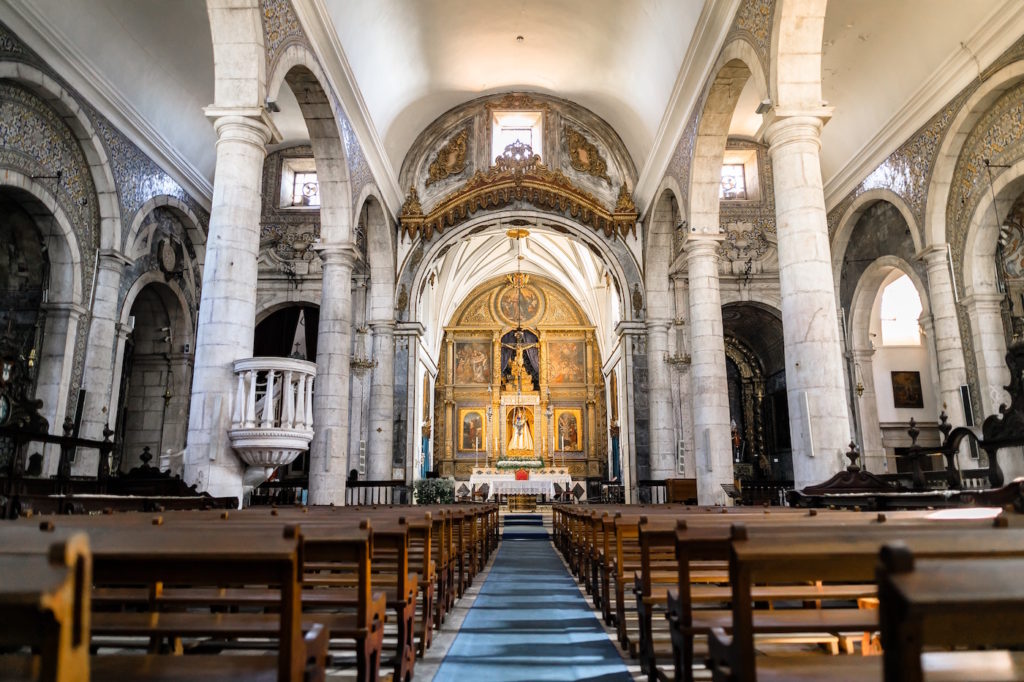At their Fall 2018 general assembly, the United States Conference of Catholic Bishops (USCCB) planned to consider proposed reforms to their policies intended to prevent sexual abuse by priests and other Church workers. Some such response seemed overdue after a summer and fall in which the abuse scandal had roared back onto the front pages. Their plans were derailed, however, when Vatican officials requested that the USCCB take no action until after a February 2019 meeting of global church leaders at the Vatican, which will address the sex abuse scandals roiling so many countries. The intervention took many stakeholders by surprise and has clearly raised the stakes for the February meeting.
After the sex abuse scandal first came to light, the USCCB adopted a Charter for the Protection of Children and Young People (the 2002 “Dallas Charter”), which set out principles for preventing priestly sex abuse. The Dallas Charter accomplished much; its implementation has significantly reduced the level of priestly sexual abuse of minors. Still, the events of summer 2018 demonstrate that further reforms are necessary to ensure that abusers and their enablers no longer have a place in the Church hierarchy.
What made the new disclosures in 2018 truly gamechangers, however, was the evidence that multiple bishops had actively covered up abuse cases. As events unfolded, it became clear that the Dallas Charter lacked any meaningful accountability mechanisms.
Happily, a model for reform lies readily at hand. Corporations have developed extensive compliance systems to deal with many forms of malfeasance, including sexual harassment and abuse. Key elements could readily be added to the Dallas Charter.
Start your day with Public Discourse
Sign up and get our daily essays sent straight to your inbox.Changing Canon Law to Make Bishops Accountable
A bishop governs a definite territory, known as a “particular church” or “diocese.” A bishop within his diocese “has all ordinary, proper and immediate power.” The diocesan bishop thus possesses essentially unilateral legislative, executive, and judicial power within his assigned diocese. National conferences, such as the USCCB, lack competence to mandate particular practices or to hold bishops accountable. “Only the Pope has juridical and disciplinary powers in regard to bishops.”
Thus, without papal supervision, bishops’ compliance with the Dallas Charter is essentially voluntary. As suggested by Cardinal McCarrick’s resignation in the face of serious allegations, the Pennsylvania grand jury report, and Archbishop Viganò’s claims of coverups by members of the Church hierarchy, however, voluntary compliance has failed all too often.
Experience in the corporate setting has taught that reliance on voluntary self-enforcement is useless. It simply does not create effective constraints on misconduct by members of the organization. Corporate governance and compliance programs thus do not give managers the option to comply or not; they mandate compliance.
If the Church’s reforms are to be truly credible, she must do the same. The canon law rights of bishops ought to be amended so that the Church can mandate compliance with both the existing Dallas Charter and the additional requirements proposed herein. In particular, canon law ought to be changed to create more effective mechanisms to hold the bishops accountable. National conferences such as the USCCB should be empowered to issue mandatory governance and compliance requirements and to create mechanisms for disciplining prelates who fail to comply.
Is It Time for a Plenary Synod?
There are several ways this could be done. Perhaps the most attractive option, albeit one that has very rarely been used in the United States, is the plenary synod. Such a synod would consist of representatives of all the dioceses in the country. It could be called by the conference of bishops, but it would require Vatican approval. In addition, the Vatican would have to approve the selection of the presiding officer. Once called into existence, a plenary synod has broad legislative authority, albeit subject to Vatican approval.
A singular advantage of the plenary synod model is that the membership extends beyond the bishops to include superiors of religious orders, leaders of Catholic universities, seminary rectors, “and other members of the Christian faithful.” Granted, only the Bishops have a deliberative vote at such a synod, but the other participants—including the laity—have a consultative vote. As such, the plenary synod provides a more credible mechanism for the Church to put forward reforms, since those reforms will have been openly—albeit, non-bindingly—subjected to a lay vote.
The opportunity for lay participation will be essential in an environment in which the hierarchy itself is suspect. A plenary synod could focus on the unique aspects of the problem in the United States, while also offering models for other countries afflicted by priestly sex abuses scandals. Granted, the decisions of a plenary synod must be reviewed and approved by the Vatican, but it would be difficult for the Pope to ignore the voice of the American Church so uniquely and forcefully expressed.
What Reforms Should Be Adopted?
A useful starting point for identifying possible reforms is to compare the charter to the US Sentencing Guidelines. These guidelines have been very influential in the development of modern corporate governance and compliance structures and processes, providing a baseline against which compliance programs are measured.
Employees are a company’s best source of information about organizational misconduct. Any sound compliance system must provide mechanisms for anonymous whistleblowing and protect whistleblowers from retaliation. The Dallas Charter should be no different.
Although compliance systems generally rely on protecting and rewarding whistleblowers who voluntarily come forward with allegations of wrongdoing, mandatory whistleblowing requirements are becoming more common. Such requirements got a significant boost in 2002 when Congress passed the Sarbanes-Oxley Act, § 307 of which required the SEC to “issue rules . . . setting forth minimum standards of professional conduct for attorneys appearing and practicing before the Commission in any way in the representation of issuers.”
The SEC thereafter promulgated attorney conduct regulations whose centerpiece is an up-the-ladder reporting requirement. When a lawyer who appears and practices before the SEC “becomes aware of evidence of a material violation by the issuer or by any officer, director, employee, or agent of the issuer,” the lawyer’s initial duty is to report such evidence “up the ladder” to the issuer’s general counsel or chief executive officer. Unless the reporting lawyer “reasonably believes that [that officer] has provided an appropriate response within a reasonable time, the attorney shall report the evidence of a material violation to” the audit committee of the board of directors, subject to various exceptions and alternatives. As former Senator John Edwards observed during the congressional debate over Section 307, the goal is to give lawyers a very “simple” obligation: “You report the violation. If the violation isn’t addressed properly, then you go to the board.”
Outside the legal profession, adopting an up-the-ladder reporting process applicable to all of an organization’s employees is increasingly recognized as best practice. Indeed, some commentators argue that this kind of mandatory whistleblowing is an essential element of a compliance program. Voluntary whistleblower programs—even when supplemented by protections for whistleblowers—do not eliminate retaliation, especially subtle forms such as social stigmatization. Voluntary whistleblowing programs also often lack mechanisms to ensure that the person to whom the report is made conducts an adequate investigation and takes remedial measures if necessary.
Mandatory whistleblowing programs involve some form of sanction for employees who fail to report misconduct to their superiors. By thus enhancing the incentives to report misconduct, such programs can benefit both the organization and society at large. In particular, they enable the organization to intervene at an earlier stage, possibly reducing the impact of the wrongdoing. It may also deter misconduct in the first place, by increasing the probability that misconduct will be reported.
On the other hand, mandatory whistleblowing also has important costs. It can erode trust within the organization and weaken hierarchical structures by encouraging employees to challenge authority. Ultimately, mandatory whistleblowing may reduce organizational efficiency and competence by encouraging mutual suspicion, discouraging organizational loyalty, and lowering morale.
Given that mandatory whistleblowing has both significant costs and benefits, it may be desirable to use a hybrid system in which some members of the Church hierarchy must report up the ladder, while others may do so on a voluntary basis. For example, priests and members of religious orders could be subject to mandatory whistleblowing, while non-clerical employees could be encouraged but not required to report up the ladder. After all, as Rod Dreher argues, “aside from actual victims of abusive priests and the bishops who covered up for them, parish priests are the ones who suffer the most from this kind of corruption. They often know what’s going on in the upper reaches of the Church’s administration, but feel that they can’t say anything.”
Reporting to Whom?
The biggest question facing the Church now is to whom misconduct should be reported. The Dallas Charter currently provides that each diocese should have a review board with a majority comprising independent lay persons, but it limits the board’s function to being “a confidential consultative body to the bishop/eparch.”
The events of summer 2018 call into question the effectiveness of such bodies and have severely undermined the public’s trust in the current review process. Even some bishops acknowledge that the laity—and society at large—have lost confidence in them to do the right thing. The absence of such confidence seriously undermines the external credibility of the Church and discourages an internal culture of compliance.
The time has come to take responsibility away from Church tribunals and diocesan bishops. Instead, each diocese should install a committee with at least a majority composed of independent laity with exclusive power to review charges of sexual misconduct, take internal disciplinary measures, and notify civil authorities. These diocesan review boards would replace the existing Church tribunals as the final authority over sex abuse cases within a diocese.
Given the considerable powers possessed by a diocesan bishop and the extent to which the bishops were involved in covering up misconduct, the diocesan review bodies should be supplemented by a new national committee under the auspices of the USCCB that would hear cases in which the alleged misconduct was committed or enabled by a sitting bishop. To be sure, the Dallas Charter required the formation of both “a National Review Board and an Office of Child and Youth Protection.” The National Review Board’s responsibilities, however, do not include acting as an investigatory body or a tribunal. The resulting “gap in accountability is an open secret, and it’s the most prominent single point that advocacy groups and other critics make when they want to argue that the Church still hasn’t cleaned up its act.”
Some commentators have suggested creation of such a tribunal to investigate the allegations against Cardinal McCarrick. This would not be sufficient. Just as the corporate scandals that preceded the adoption of Sarbanes-Oxley could not have adequately been addressed by a one-time investigation of Enron, the widespread and ongoing nature of the sexual misconduct scandal within the Church requires setting up permanent equivalents of corporate audit committees.
The Roman Catholic Church’s sexual abuse scandal has had tragic costs for its victims and has significantly undermined the Church’s credibility as a moral authority. Without significant reforms, the Church will not be able to get past the abuse scandal and fulfill her mission of saving souls.













